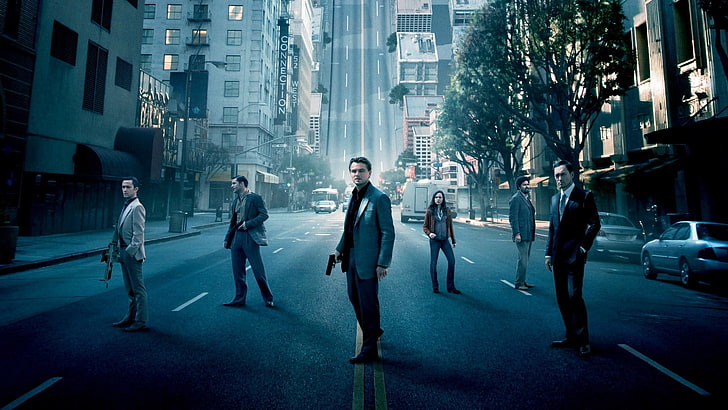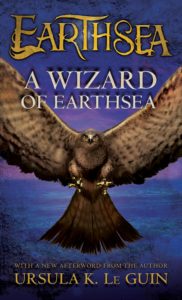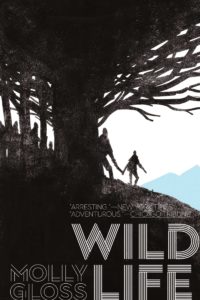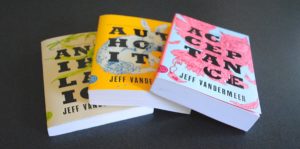How to Pull off an Unusual Ending
Writing a powerful ending is hard under any circumstances. Doubly so if you are trying to do something that goes against audience expectations.
I don’t mean a “surprise” or “twist” ending, which is often a reader favorite. I mean an ending that is truly non-traditional. Maybe it refuses to use a grand battle at the climax. Maybe it’s ambiguous or leaves key questions unanswered.
How to do this without disappointing or confusing your audience? I’ve been analyzing stories that do unusual endings well and comparing them to those that just leave me saying “Huh?” or “Meh,” and I think it boils down to two key questions:
- Why are you choosing a to write a non-traditional ending in the first place?
- Have you left clues for your reader so that your ending makes sense in retrospect?
Warning: This post contains spoilers.
Ending as Expression of Theme/Plot
If you’re writing an unusual ending just to be different or “artsy,” chances are it’s a bad idea. An unusual ending works when the story you’re trying to tell couldn’t be told any other way—or, at least, couldn’t be told as well.
Take the movie Inception, written and directed by Christopher Nolan. The film ends ambiguously, after the main character is reunited with his children, but before the audience learns whether this reunification takes place in the real world or in the dream world.
The reason this open ending works is because the whole movie is about the intoxicating, powerful nature of dreams. The fact that the main character is so happy to see his kids that he doesn’t wait to see if he truly back in reality (something he checks repeatedly earlier in the film) shows he’s changed as a person and has chosen the dream world regardless of his actual location.
In other words, the ending is the ultimate crystallization of the story’s meaning.
Ending as Expression of Worldview
Sometimes it isn’t the story itself that demands an unusual ending, it’s the author’s unique point of view.
I was reminded of this recently when I was reading A Wizard of Earthsea to my 10-year-old son. Much of the novel seems conventional for a fantasy geared toward younger readers; it’s about a teenage wizard who mistakenly unleashes a “shadow” evil while at magic school.
But rather than battle the evil with swords or wands, the young wizard does something very different. He recognizes it as his own creation, hunts it down across the sea so it can’t hurt anyone else, and then calls it by his own name and absorbs it into himself. That’s right – he admits to his own failings, willingly sacrifices himself, and instead gains control of the evil.
In the novel’s afterward, author Ursula K. Le Guin stated that this ending was the only way she could have written the book because of who she is:
“[The traditional fantasy] convention was and is still so dominant that it’s taken for granted—’of course’ a heroic fantasy is good guys fighting bad guys, the War of Good Against Evil. But … I don’t think this way.
… A hero whose heroism consists of killing people is uninteresting to me. … By reducing the choices of action to ‘a war against’ whatever it is, you divide the world into Me or Us (good) and Them or It (bad) and reduce the ethical complexity and moral richness of our life … . In stories it evades any solution but violence and offers the reader mere infantile reassurance.”
Plant Your Seeds Early and Often
Once you feel confident your unusual ending is justified, you still want to it to feel satisfying for the reader. An unusual ending that comes out of nowhere will only be jarring. But if you drop hints, readers will notice and feel smart for sensing something unusual is afoot.
One of my favorite examples of a novel that telegraphs its unusual nature–without giving too much away–is the excellent novel Wild Life by Molly Gloss.
The first chapter is a letter between siblings regarding a newly discovered cache of their grandmother’s writing. The sibling known only as “J” states outright that the papers are a mysterious combination of a diary, excerpts of the grandmother’s published fiction, unfinished stories and newspaper clippings jumbled together. “J” explains that the diary appears to have been written by their grandmother in 1905 while she searched for a little girl gone missing in the deep woods of the Pacific Northwest. But then, she adds, “who knows?” It also might have been a novel-in-progress and furthermore, she writes, “why should we have to answer that question?”
At the novel’s completion, Gloss resolves the mystery of what happened to the missing girl, so that I felt neither cheated nor confused. Yet, as the first chapter hints, she doesn’t completely tie up the meaning of the middle of the story and its more fantastical elements; rather, she leaves the truth of them for to me to decide. I absolutely loved the effect.
A more subtle example of this can be seen in Jeff VanderMeer’s Southern Reach Trilogy, which is about a mysterious wilderness area that kills anyone who ventures into it, as well as a team of scientists trying to figure out why.
Throughout the novels, there’s the recurrent theme that science seldom knows all the answers, that any answer should be viewed with suspicion, that reality is inherently unknowable, and people are inherently biased.
In the end, we get some clarity as to what’s going on in “Area X,” but much remains beyond our understanding. For me, this felt in sync with the overall message, creepy tone and general moody/weirdness of VanderMeer’s fiction. But if you go read the reviews on Amazon or Goodreads, you’ll see a small chunk of readers were very disappointed.
Which brings me to my final point: If you’re going for an unusual ending, be prepared that, no matter what you do, some people won’t like it.
VanderMeer not only acknowledged but embraced this in an interview with Electric Literature:
“What I have to accept is that some readers will find too many answers and some readers too few,” he said. “Given the series is also exploring the idea of subjectivity and competing ideologies or narratives, that’s probably appropriate.”




